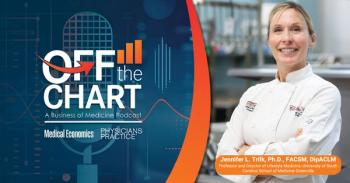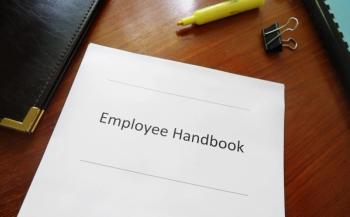
Discipline a Key Factor in Medical Practice Productivity
A friend from my past, let's call her Dr. Fabulous, taught me four key lessons to improve productivity in a medical practice and in life.
The mother of my daughter's childhood friend was a physician. I had known of her before we met because she was locally famous.
"Dr. Fabulous" had a busy practice, a physician husband, and three active children. She was a gourmet cook, made all her own clothes, and took ballet class three nights a week. Her children were happy, clean, and well behaved. Even more impressive, she was always calm and well turned out. The conventional wisdom among my friends was that she was a freak of nature. Several of our husbands thought her productivity and demeanor were achievable for anyone with energy and discipline. As she and I became better acquainted, I realized that we were probably all right.
Values
Not only did Dr. Fabulous have a very clear idea of what was important to her, she also knew what she did not value. If an activity had no intrinsic value to her, or was inessential to something that did, she ignored it. She was always pleasant but never seemed to be especially concerned about what someone else might think.
Priorities
Every outcome she valued seemed to have a priority assigned, and the priorities were always clear in her mind. If two goods conflicted, she went with the one with the higher priority and dismissed the other completely. The strict prioritization had two dramatic effects:
1. She could make decisions very quickly, with almost no time spent without moving a task forward. No dithering.
2. Once a decision was made, she expended no energy on regret or self-recrimination.
Realism
Dr. Fabulous never kidded herself that she could do everything she wanted to do if she just worked harder or faster or was more determined. It seemed to me that she treated the allocation of her time and energy as a capital budgeting exercise. That is, she committed her resources, from highest priority to lowest, until they were fully expended. She accepted the consequences of her decisions and did not seem to regret the things she did not do.
Assertiveness
Peer pressure was non-operative on Dr. Fabulous. She was completely impervious to guilt because there was a big need for volunteers. If she could help, she would. If she could not, she would not agree to help. Again, the decision was quick and she wasted no time in feeling guilty. When she was the one looking for volunteers, there was no wheedling.
The Lessons
This woman was definitely unusual, and her exceptional productivity and calm were direct results of energy and discipline. Here are some of the things I learned from her:
• Looking outside of myself for confirmation and approval is a waste of time and energy.
• Clarity about the relative importance of my personal values is required for consistent and rapid decisions.
• Acknowledging my temporal limitations facilitates productive activity. There are only 24 hours in a day, no matter how much I want to get done.
• If the resources are not available, it is OK to say '"no" in social situations. It could be argued that there is a duty to say "No, because…" in work situations, rather than agreeing to do the impossible.
Newsletter
Optimize your practice with the Physicians Practice newsletter, offering management pearls, leadership tips, and business strategies tailored for practice administrators and physicians of any specialty.









